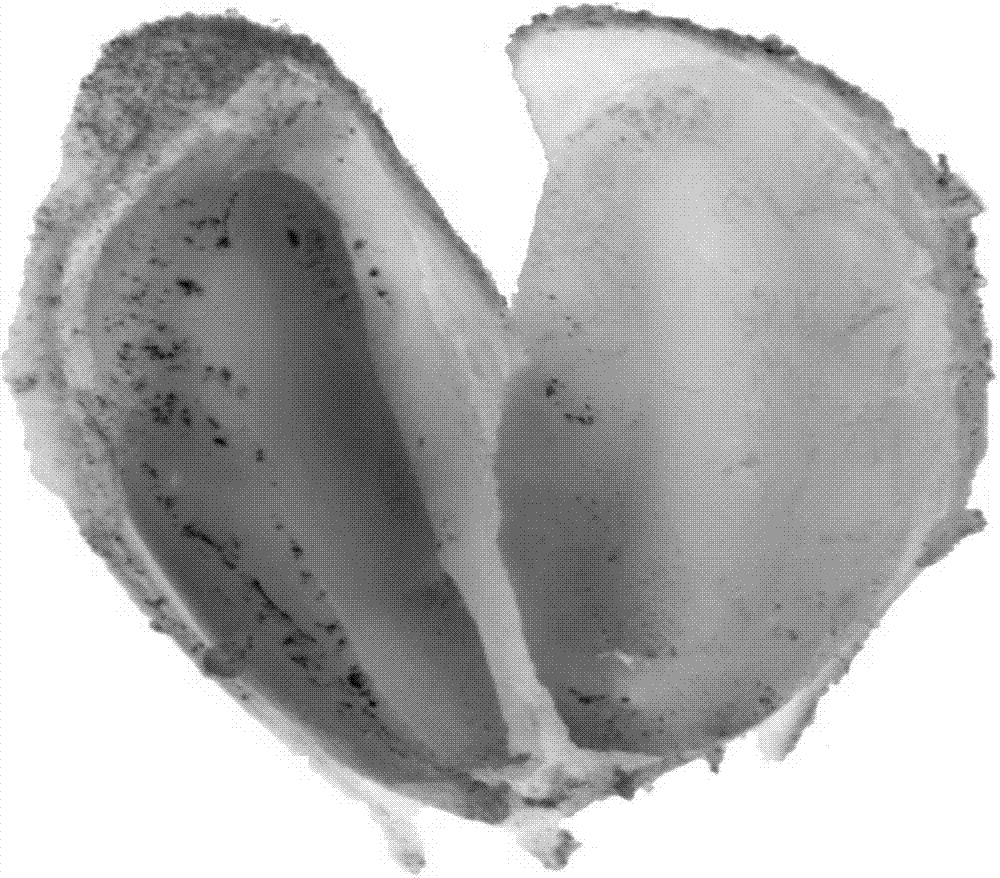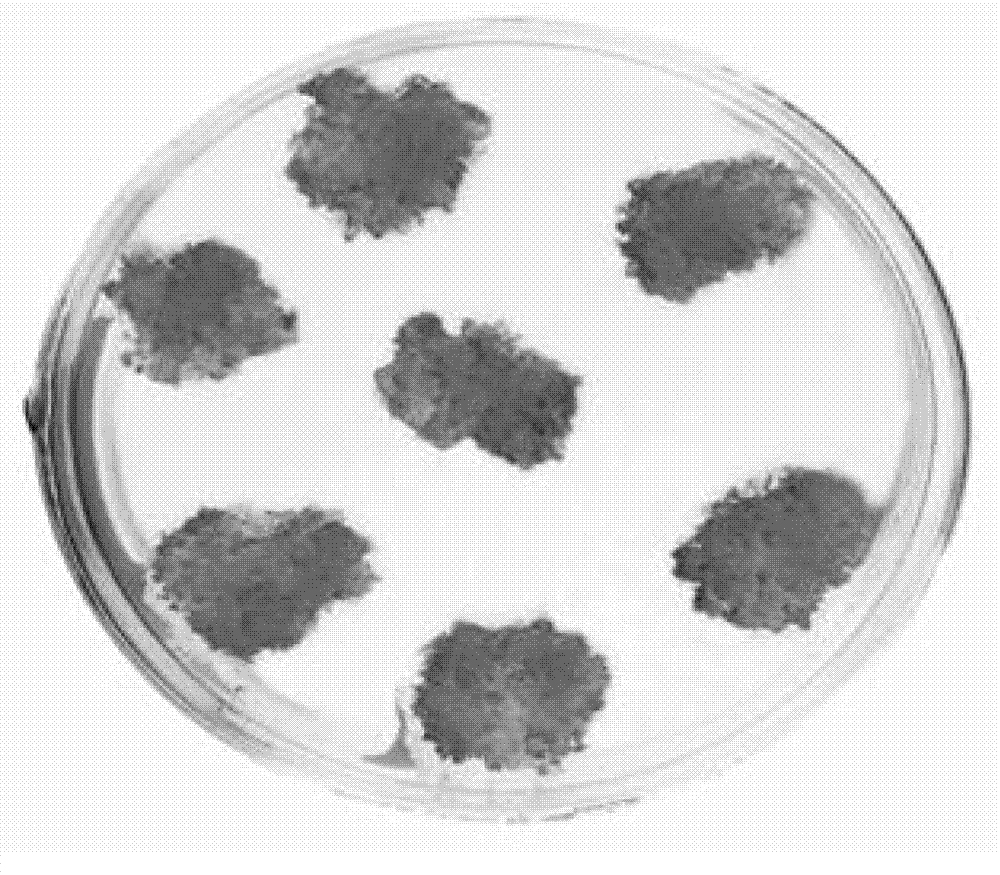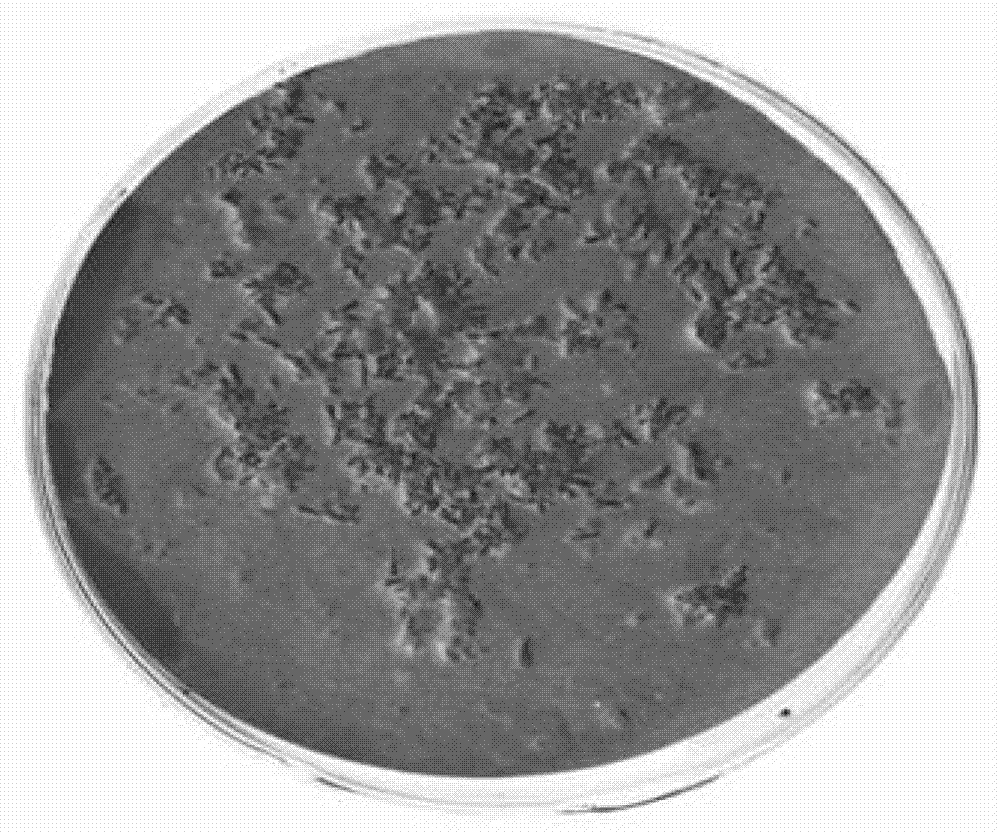Method for picea balfouriana somatic embryo generation and plant regeneration
A technology of embryogenesis and somatic embryos, which is applied in the field of forestry cell engineering seedling propagation, can solve the problems of low seed maturity rate, slow growth, affecting the genetic improvement process, etc., and achieve the effect of increasing the induction rate
- Summary
- Abstract
- Description
- Claims
- Application Information
AI Technical Summary
Problems solved by technology
Method used
Image
Examples
Embodiment 1
[0038] Isolation of immature zygotic embryos: collecting free-pollinated cones of Picea spruce in western Sichuan at the end of August, which were free-pollinated in spring, and refrigerated at 4°C for 7 days. The cones were treated with 95% ethanol for 15 minutes, and washed 3 times with sterile water. Under sterile conditions, remove the seeds and peel off the seed coat, and immature zygotic embryos (such as figure 1 shown) for the next stage of embryogenic callus induction culture.
Embodiment 2
[0040] Embryogenic callus induction stage: The immature zygotic embryos obtained in Example 1 were cultured for embryogenic callus induction. Using 1 / 2LM basic medium, the additional hormone concentrations were 2.2mg / L for 2,4-D, 1.1mg / L for 6-BA and 0.22mg / L for KT. Also, 1 g / L natural complex enzymatic casein, 1% sucrose, 500 mg / L glutamine (filter sterilized) and 0.2% plant gel (Gelrite, Sigma) were added to the medium. Before sterilization, adjust the pH to 5.7, sterilize at 121°C, pressure 101kp, high temperature, high pressure for 20 minutes, culture temperature 24±1°C, and culture in dark conditions until embryogenic callus is induced. Induction rate: 61.55%.
Embodiment 3
[0042] Embryogenic callus induction stage: The immature zygotic embryos obtained in Example 1 were cultured for embryogenic callus induction. Using 1 / 2LM basic medium, the concentration of additional hormones is 2,4-D 0.55mg / L, 6-BA 0.8mg / L, and adding 1g / L natural complex enzymatic casein to the medium, 1% sucrose, 500mg / L glutamine (filter sterilized) and 0.2% vegetable gel (Gelrite, Sigma). Before sterilization, adjust the pH to 5.7, sterilize at 121°C, pressure 101kp, high temperature, high pressure for 20 minutes, culture temperature 24±1°C, and culture in dark conditions until embryogenic callus is induced. The induction rate was 60.56%.
PUM
 Login to View More
Login to View More Abstract
Description
Claims
Application Information
 Login to View More
Login to View More - Generate Ideas
- Intellectual Property
- Life Sciences
- Materials
- Tech Scout
- Unparalleled Data Quality
- Higher Quality Content
- 60% Fewer Hallucinations
Browse by: Latest US Patents, China's latest patents, Technical Efficacy Thesaurus, Application Domain, Technology Topic, Popular Technical Reports.
© 2025 PatSnap. All rights reserved.Legal|Privacy policy|Modern Slavery Act Transparency Statement|Sitemap|About US| Contact US: help@patsnap.com



